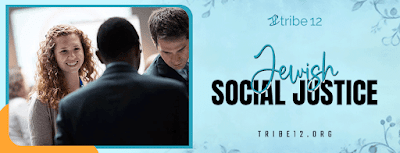Empowering Jewish Social Justice: Making a Difference Beyond Borders
Understanding Jewish Social Justice
In today's complex world, the concept of social justice resonates deeply within the Jewish community. Rooted in centuries of tradition, social justice encompasses values of compassion, equality, and advocacy for the marginalized.
Historical Context and Modern Relevance
From biblical times to the civil rights movement and beyond, Jews have been at the forefront of social justice causes. The legacy of fighting for justice and equality is ingrained in Jewish identity, driving contemporary efforts to address pressing issues such as poverty, racism, and human rights violations.
Tikkun Olam: Repairing the World
Central to Jewish social justice is the principle of Tikkun Olam, the belief that individuals have a responsibility to actively participate in repairing the world. Through acts of kindness, community service, and advocacy, Jews strive to create a more just and equitable society for all.
Intersectionality and Inclusivity
In the pursuit of social justice, it is crucial to recognize the intersectionality of oppression and the importance of inclusivity. Social justice initiatives often collaborate with diverse communities to address systemic injustices and promote solidarity across religious, racial, and cultural lines.
Taking Action: From Awareness to Impact
Raising awareness is undoubtedly a crucial first step in addressing social injustices, but it is only through tangible action that meaningful change can be achieved. Jewish organizations and individuals across the globe understand this imperative and are actively engaged in a multitude of initiatives aimed at effecting positive change. From grassroots activism to legal advocacy and philanthropic endeavors, the Jewish community is mobilizing its resources and expertise to uphold the values of justice and righteousness. Furthermore, philanthropy plays a pivotal role in supporting social justice initiatives. Jewish donors and foundations provide critical funding for grassroots organizations, legal advocacy efforts, and community-based programs aimed at addressing systemic injustices. By investing in education, healthcare, economic empowerment, and social services, philanthropists are helping to build more equitable and inclusive societies, both locally and globally.
Challenges and Opportunities Ahead
Despite progress, challenges persist in the pursuit of justice. Antisemitism, bigotry, and political divisiveness pose significant obstacles, underscoring the ongoing need for vigilance and resilience. Yet, within these challenges lie opportunities for growth, solidarity, and collective action. Moreover, bigotry and prejudice in all their forms undermine the principles of justice and equality. Whether it's racism, sexism, homophobia, or xenophobia, bigotry perpetuates systemic inequalities and undermines efforts to build more inclusive societies. By confronting bigotry wherever it arises and promoting diversity and inclusion, we can create a more just and equitable world for all. By building bridges, forging alliances, and amplifying diverse voices, we can harness the power of collective action to effect meaningful change and create a more just and compassionate world for future generations.
Wrapping up
As we navigate the complexities of our world, Jewish justice remains a beacon of hope and inspiration. By embracing the values of compassion, equality, and Tikkun Olam, we can work together to build a more just and compassionate society for future generations. Together, with Tribe 12, let us continue to empower Jewish social justice and make a difference beyond borders.




Comments
Post a Comment